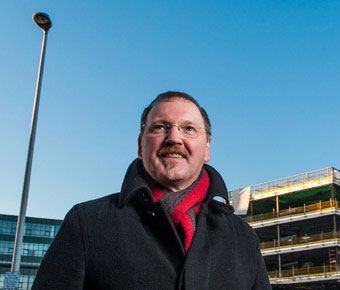
24 Oct 2019
Meddling with commuters in their journey to work is a risky venture. East Londoners made that plain last week when climate change protesters held up early morning trains on the London Underground and were unceremoniously hauled back to earth.
It might be worth considering the reaction of their Scottish cousins when local councillors consider whether to introduce the Workplace Parking Levy set out in the Holyrood Transport Bill.
The WPL gives local authorities the power to introduce an annual tax on employers who provide parking places to their staff. The only current example of such a tax operating in the UK is in Nottingham where the charge is £415 every year on each parking place if employers provide more than 10 spaces. The primary justification is to encourage staff to use public transport instead of their cars.
Another tax on business you might think, but you would only be partially correct. For if the aim is genuinely to encourage a change in commuting behaviours then the tax would really have to be passed on to employees. And that is why I have heard from so many businesses in Glasgow who vigorously oppose the idea.
The opposition is mostly coming from businesses that operate outside the city centre, often in the city’s poorest neighbourhoods, and it is obvious why. Our public transport system is at its strongest helping commuters get into the city centre. It is much weaker connecting people to the surrounding districts - usually involving multiple, time-consuming bus or train journeys.
Glasgow City Council’s own Connectivity Commission - of which I was a member - in its examination of the city’s public transport system made that very point. It also made powerful recommendations on improvements, such as a Glasgow Metro, which could help make choosing public transport a more practical option.
If you have a job in the city centre you probably won’t be too challenged at the thought of a levy because you are very unlikely to be driving to an employer’s parking space anyway. New office developments rarely include great numbers of parking spaces.
But if you work elsewhere in the city then be alert to the consultation process the Council will have to go through to decide whether WPL should be introduced. Taxing people to get to work who have no practical public transport alternative might be as unpopular as blocking a train in Canning Town.